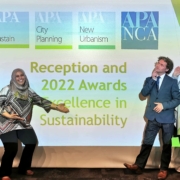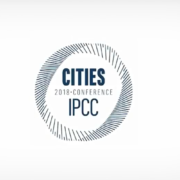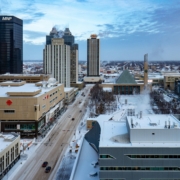Day 2: Insights from the IPCC Cities and Climate Change Science Conference
The City of Oslo has embedded emissions reductions deeply into the mechanics of municipal operations. The Vice-Mayor of Oslo discussed her City’s carbon budget, which parallels the City’s financial budget. Departments are assigned responsibilities and are required to implement those responsibilities in order to achieve their targets of cutting emissions in half over 1990 levels by 2020 and becoming completely carbon neutral by 2030. This mechanism relies on the strongest tool the city has – the city budget process – and brings a new transparency to greenhouse-gas (GHG) emissions planning, with an annual reporting process.
The variety of challenges that cities face, globally, is important to note. On the one hand, there is the sophistication of the approach of Oslo and other northern cities while others are grappling with the challenge of informal settlements. Frequently, there is low or no data available in many of the communities in the Global South. Critically, as one researcher from South Africa pointed out, Africa does not have a carbon problem, they have an energy problem. GHG emissions from Africa barely register relative to those of other Northern countries; in this case, it is more about survival and the imperative is development.
Nigel Tapper from Monash University provided some fascinating and frightening insights into the hotter world of the future. A major drought between 1997 and 2009 led to two of the largest cities in Australia nearly run out of water—Melbourne, and Brisbane. The lack of water in the soil resulted in dust storms and forest fires. Recently, temperatures have been rising to nearly 50 degrees Celsius in Melbourne and Sydney. Statistical analysis indicated that when the temperature exceeded an average of 30-degree Celsius over twenty-four hours, the death rate for people over 67 years of age increases abruptly to 17%. However, a reduction of 1-2 degrees at that threshold can save lives. The research team created an index of 11 risk factors and validated the risk scale through a comparison with ambulance call outs. They then began to evaluate strategies to reduce heat by 1-2 degrees:
- Doubling tree cover from 20 to 40% can reduce mean radiant temperature by 4 degrees.
- A green roof can result in up to 20-degree surface temperature reduction with little impact away from the roof.
- An Individual tree can result in up to 1.5-degree temperature cooling under it.
- Inner city parks result in 1 degree of cooling and up to 10 degrees cooling in shade.
- A large urban lake can result in 1-degree cooling and up to 1 degree of cooling downwind.
Finally, on a completely different note, in Holland, the Buurkracht Community Power project has developed a new strategy to unlock community scale retrofits. Led by the Enexis Group, a grid operator owned by local municipalities, the process hinges on the involvement of local volunteers who are community heroes.
Step 1: Find local heroes and form community team of the local heroes. The heroes than recruit neighbours.
Step 2: Site survey neighbourhood and dwellings. The best five actions to undertake in homes and the neighbourhood are identified, including retrofits, district energy, and solar PV.
Step 3: Mobilising the neighbourhood—The measures are presented at a community meeting and contractors are at those meetings.
Step 4: Implement the measures.
Step 5: Let the savings begin. This is also the first step again for a new round of actions as those who did not participate in the original round begin to notice the retrofit activities and a new round begins.
A key insight: it is critical to get women to the meetings, not just men. Another key insight: Many people assumed that environment was not an important motivator, but it actually was. Enexis is now supporting more than 200 neighbourhoods in this process.






 Photo by Dylan Ferreira on Unsplash.
Photo by Dylan Ferreira on Unsplash.

